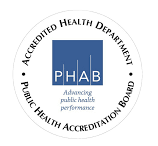West Nile Virus
Facts and Information
West Nile Virus (WNV) is a potentially serious mosquito-borne disease. More than 30,000 people in the U.S. have been infected with WNV since 1999. Occasionally, an infected person may develop more severe diseases such as "West Nile encephalitis," "West Nile meningitis" or "West Nile meningoencephalitis." Click here to view recent WNV activity in Arkansas.
Nile meningitis" or "West Nile meningoencephalitis." Click here to view recent WNV activity in Arkansas.
Encephalitis refers to an inflammation of the brain, meningitis is an inflammation of the membrane around the brain and the spinal cord, and meningoencephalitis refers to inflammation of the brain and the membrane surrounding it. Almost 13,000 of the individuals who have been reported as having West Nile virus since 1999 have been seriously ill, and more than 1,200 have died.
Other mosquito-borne diseases in Arkansas and surrounding states include St. Louis encephalitis and Eastern Equine encephalitis. Mosquitoes become infected when they feed on infected birds. These illnessesaffect birds, animals and humans, causing flu-like symptoms in people who are bitten by infected mosquitoes. Only certain types of mosquitoes carry WNV. A mosquito must first become infected by feeding on a bird (host) that has the virus and then bite a human or animal to pass the disease along. Certain species of birds (especially crows and blue jays) can also get sick and die from the disease, as can horses, although like most people, like birds and horses, show no symptoms.
West Nile Virus cannot be spread by person-to-person contact.
Experts from the Centers for Disease Control and Prevention (CDC) believe WNV is established as a seasonal epidemic in North America that flares up in the summer and continues into the fall.
West Nile Virus was first identified in 1937 in Uganda in eastern Africa. It was first discovered in the United States in the summer of 1999 in New York. Since then, the virus has spread throughout the United States. It was first recognized in Arkansas in 2002.
People infected by WNV will typically develop symptoms within 3 to 14 days after they are bitten by an infected mosquito. Many people are bitten by mosquitoes that carry WNV, but most do not know they've been exposed.
- Approximately 80 percent of people (about 4 out of 5) who are infected with WNV will not show any symptoms at all.

- Mild illness can occur in up to 20 percent of the people who become infected. The people who become infected have symptoms such as fever, headache, and body aches, nausea, vomiting, and sometimes swollen lymph glands or a skin rash on the chest, stomach and back. Symptoms can last for as short as a few days, though even healthy people have become sick for several weeks.
- A small number of people (about 1 in 150) who get infected with WNV develop severe disease. The severe symptoms can include high fever, headache, neck stiffness, stupor, disorientation, coma, tremors, convulsions, muscle weakness, vision loss, numbness and paralysis. These symptoms may last several weeks, and neurological effects may be permanent.
- Few people develop severe disease or even notice any symptoms at all. Risk factors for developing a more severe form of West Nile Virus include:
- Conditions that weaken the immune system, such as HIV, organ transplants and recent chemotherapy.
- People over the age of 50.
Risk through medical procedures is very low. All donated blood is checked for WNV before being used.
Resources


